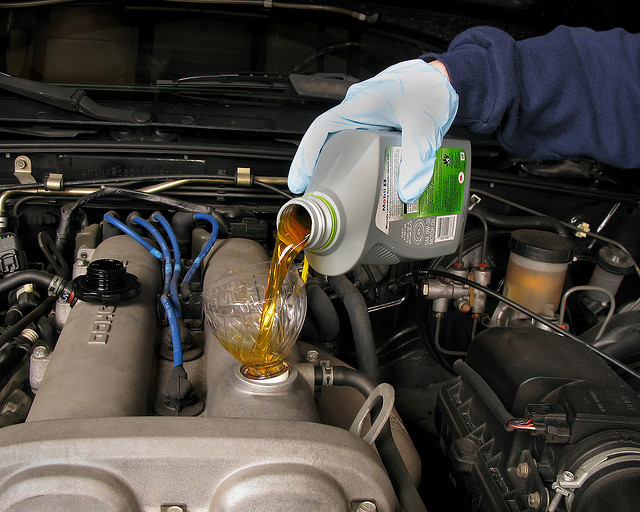
Getting your oil changed is necessary if you want to keep your car performing its best. Think of an oil change like spring cleaning, you have to get rid of some junk so that things can run as efficiently as possible. If you don’t do your “spring cleaning”, the junk will just continue to pile up and create an even worse situation. So, get the facts and learn why an oil change is so important, how often you should get one, and what happens if you don’t.
Making sure you have fresh oil is so important because it lubricates the many parts that comprise the engine. It also acts as a cooling agent and prevents the engine from overheating. Over time, oil becomes less effective thanks to exposure to heat, air, and moisture. This results in the oxidation of the oil which causes it to thicken and become sludge like, once this happens the oil has lost its effectiveness and can no longer combat the dirt and metals that are constantly moving around the engine. This debris is corrosive and slowly breaks down the engine. If debris continues to scrape against the inside of the engine, it can lead to expensive repairs that could have easily been avoided by paying the $50 or so that it costs to get your oil changed.
There are many different types of oil to choose from, which can be overwhelming if you are unfamiliar with cars. Basically there are two major types, conventional and synthetic. The major difference is that the “base oil” used in synthetic oil is considered to be more “pure” because the molecules that comprise this oil are all made to be an ideal weight and consistent size. All oil also has additives, which are mixed into the base oil to change the viscosity, protection properties and heat breakdown levels of the oil. The oil that is used in synthetic oil has more sophisticated additives that allow it to perform more consistently in extreme weather conditions. Synthetic oil flows through the engine more easily which improves its lubricant properties which leads to it protecting the engine better than conventional oil. Your owner’s manual should tell you the best option for your car, but it’s also important to take into account how many miles are on your car and what type of climate you live in. If you have over 75,000 miles on your car or live in an area with extremely hot or cold temperatures, it may be wise to consider getting synthetic oil during your next oil change, even though it is slightly more expensive.
So how often should you change your oil? There are mixed reviews out there, but the general consensus is that conventional oil should be changed every 3,000-5,000 miles, and synthetic oil (which lasts longer) should be changed every 5,000-7,000 miles. However, every vehicle is different and your owner’s manual will give you the most accurate estimate for an oil change. It’s also good to take into account factors that can shorten the life of your oil, such as extremely hot weather or frequently taking short trips. So, be aware of your mileage and if you see the “change oil light” come on, change your oil ASAP!
We can’t stress enough how important it is to get your oil changed in a timely manner! Putting it off can cause major damage to your engine which is one of the most expensive parts of a car to repair. So keep watching your mileage, and definitely consult your owner’s manual to figure out which type of oil is best and to get a better idea of exactly how often your car is recommended to get its oil changed. Taking these simple steps can save you some serious headaches and money in the future!
Information from: Firestone Complete Auto Care and Ezine Articles
Photo By: Robert Couse-Baker
